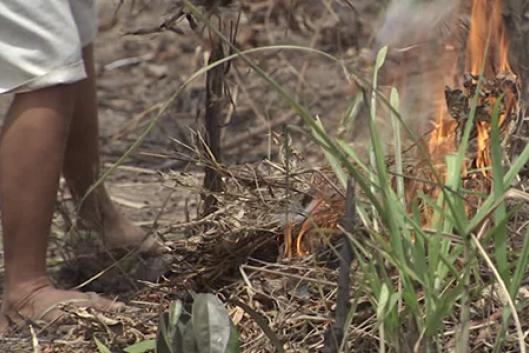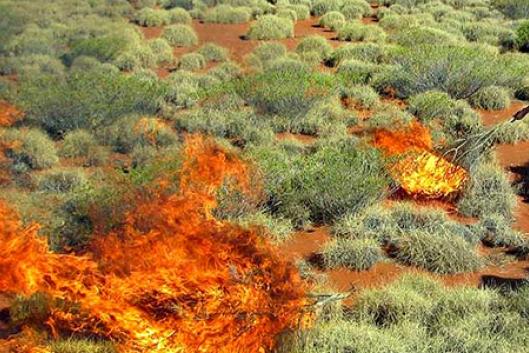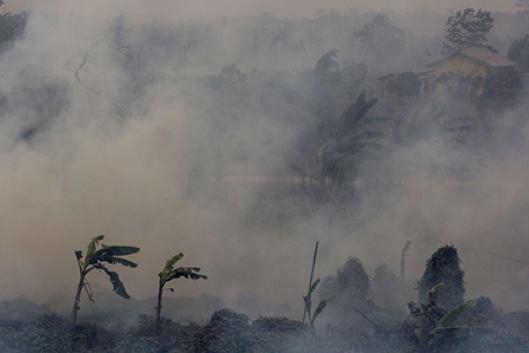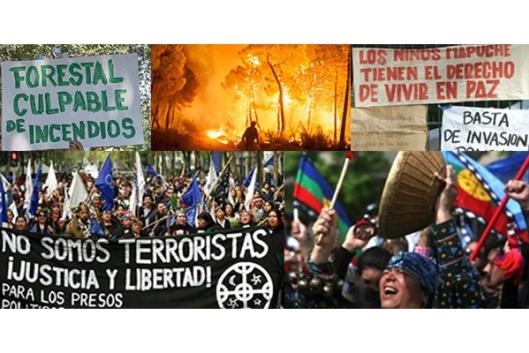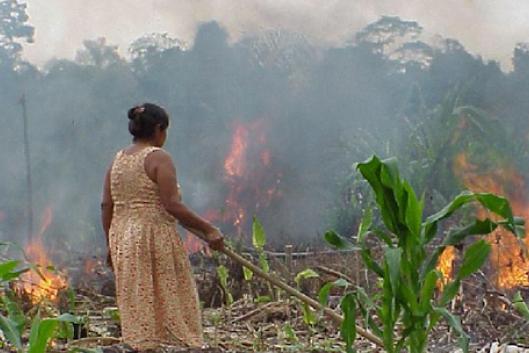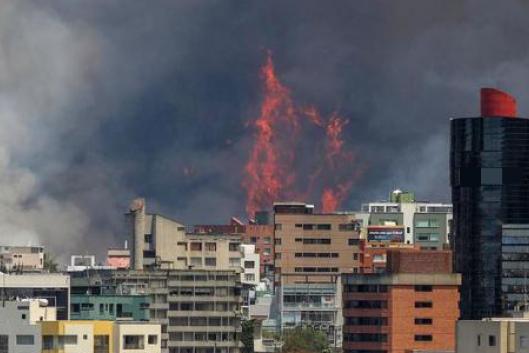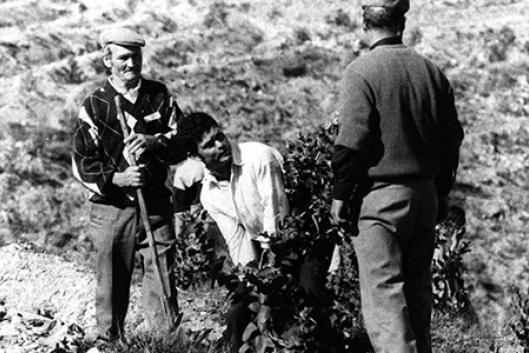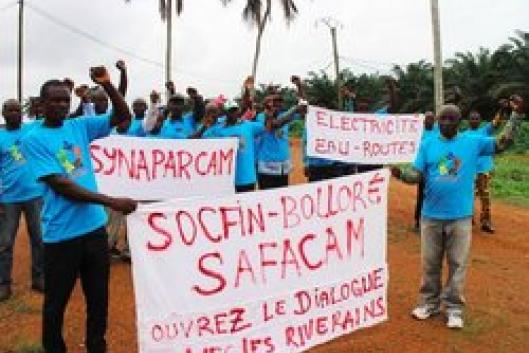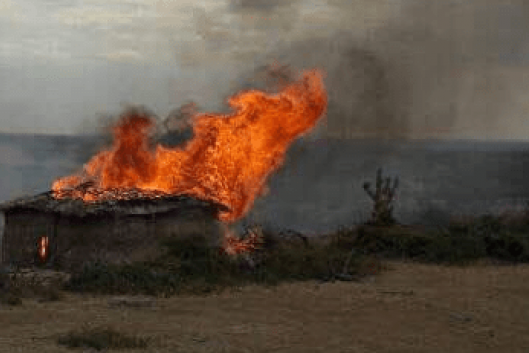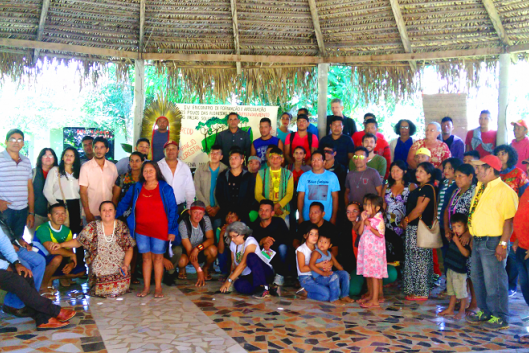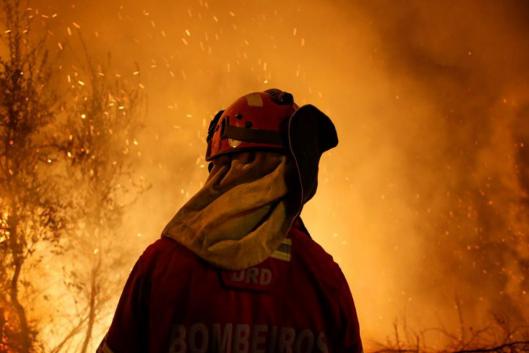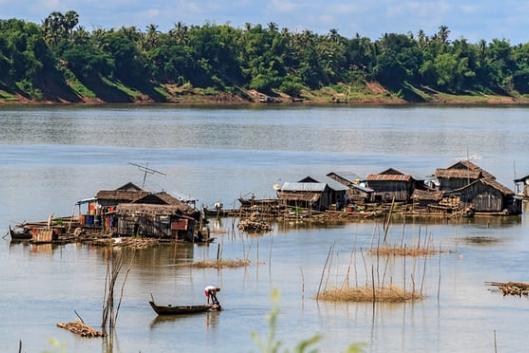Forest peoples’ knowledge and practices of the use and management of controlled fire in forests have been identified within climate change policies as the cause of forest fires. Nevertheless, fire is critical for ensuring the food and cultural sovereignty of forest peoples.
Bulletin 238 - June/July 2018
Good fire or bad fire, who decides? A reflection on fire and forests.
This bulletin has articles written by the following organizations: The Corner House, UK; The Institute for Ecosoc Rights, Indonesia; MapuExpress, Chile; Acción Ecológica, Ecuador; indigenous leader from the Peruvian Amazon and members of the WRM secretariat.
WRM Bulletin
238
June/July 2018
OUR VIEWPOINT
GOOD FIRE OR BAD FIRE, WHO DECIDES? A REFLECTION ON FIRE AND FORESTS
-
9 July 2018Today, a capitalist conception of fire dominates. But vernacular conceptions continue to evolve and struggle against it.
-
9 July 2018Despite that most forest fires in Indonesia started within expanding oil palm plantation concession areas, companies are not being persecuted. (Available in Indonesian).
-
9 July 2018Tree plantation companies have enormous power and impunity in Chile. The fires of 2017 demonstrated the collusion between these companies and public officials to prevent investigations and criminalize the Mapuche indigenous people
-
9 July 2018Fires in the Amazon are occurring more frequently and with greater intensity. But who is really burning the forests?
-
9 July 2018Since the native vegetation that surrounded Quito was destroyed to make way for eucalyptus and pine plantations, the forest fires that the city faces year after year have been intensifying.
-
9 July 2018In 1989, there was a war in the valley of Lila, Portugal. Hundreds of people gathered to destroy 200 hectares of eucalyptus, fearing that the trees would rob them of their water and bring fire.
ACTION ALERTS
-
9 July 2018In 2016, a TV station in France (Channel 2) aired a report that told the story of Vincent Bolloré, a businessman who heads the oil palm plantation company, Bolloré, a subsidiary of the multinational company, Socfin. The television report showed the social and environmental abuses committed in Cameroon by the company, Socapalm, another subsidiary of Socfin. Vincent Bolloré owns 38.7% of the shares of Socfin. In a clear intimidation strategy, the businessman decided to take the journalist to court on charges of defamation. In early June, 2018, the criminal court of Nanterre, France, ruled that there was no defamation in the news report, and on the contrary, congratulated the journalist's boldness and independent work.
-
9 July 2018A report from Oakland Institute documents in detail the many rights abuses faced by the Maasai in the Ngorongoro and Loliondo regions of Tanzania. In recent years, hundreds of Maasai homes have been burned and tens of thousands of people evicted from their land in the name of conservation and safari tourism. Maasai from four villages in Loliondo sued the government of Tanzania in September 2017 for the right to return to their villages which have become part of a safari park. But, according to the Pan African Lawyers Union and the Oakland Institute, the government is intimidating and criminalizing villagers and ally NGOs to leave the case.
RECOMMENDED
-
9 July 2018From June 15-17, 2018, indigenous peoples and communities that live and work in forests gathered in Sena Madureira, Acre, to denounce the false solutions to environmental and climatic degradation that green capitalism proposes. They denounced projects that buy into the fallacy that it is possible to continue polluting the earth, water and atmosphere in one part of the planet, and “offset” this pollution by conserving forests in another region. In addition to this impossibility, these measures end up harming populations who actually interact with forests in a balanced way.
-
9 July 2018An article by Transparency International shows how the political establishment of Portugal—which should be managing the forest, territorial planning, and firefighting and prevention measures—is held hostage to influential business interests. According to the article, this explains why so many people die and so much area is destroyed by fires year after year. Among the most powerful groups is the pulp and paper industry, and their production depends on monoculture plantations of eucalyptus, which are estimated to cover almost one million hectares. The Navigator Company holds a position of dominance in the country, and it is involved in all stages of production.
-
9 July 2018A Chinese-backed plan to build Cambodia’s biggest dam could “literally kill” the Mekong river, according to a confidential government assessment seen by the newspaper The Guardian, which says that the proposed site at Sambor is the “worst possible place” for hydropower. The newspaper article states that dire impacts are predicted on river dolphins and one of the world’s largest migrations of freshwater fish, which in turn affect the many fisher villages that depend upon this river basin. The Mekong sustains the livelihood of 60 million people and 80 per cent of Cambodians count on fish as their main source of protein.
